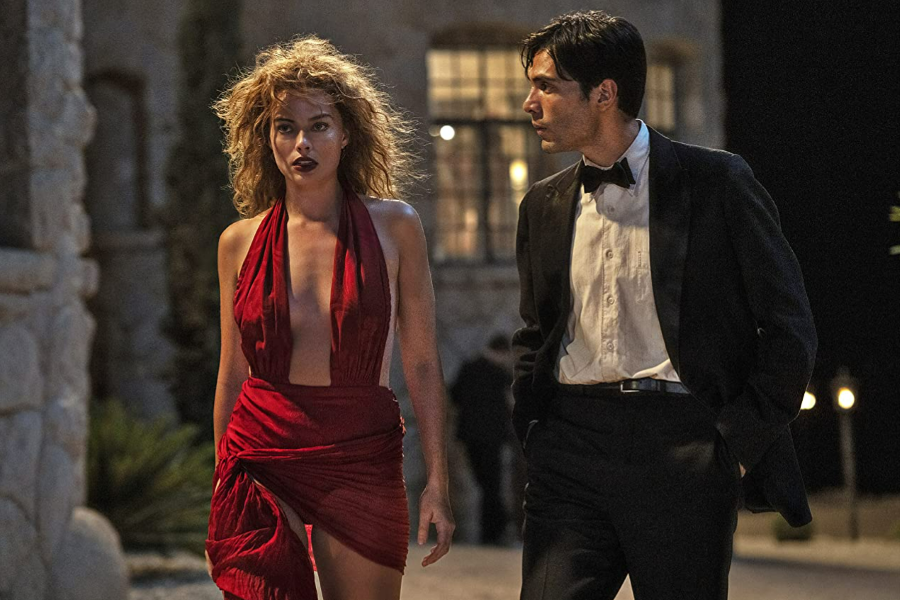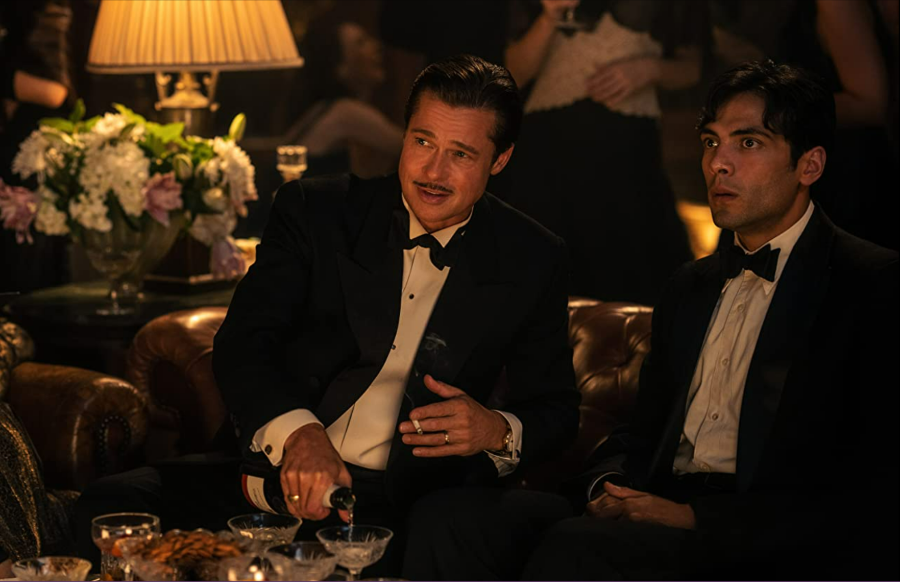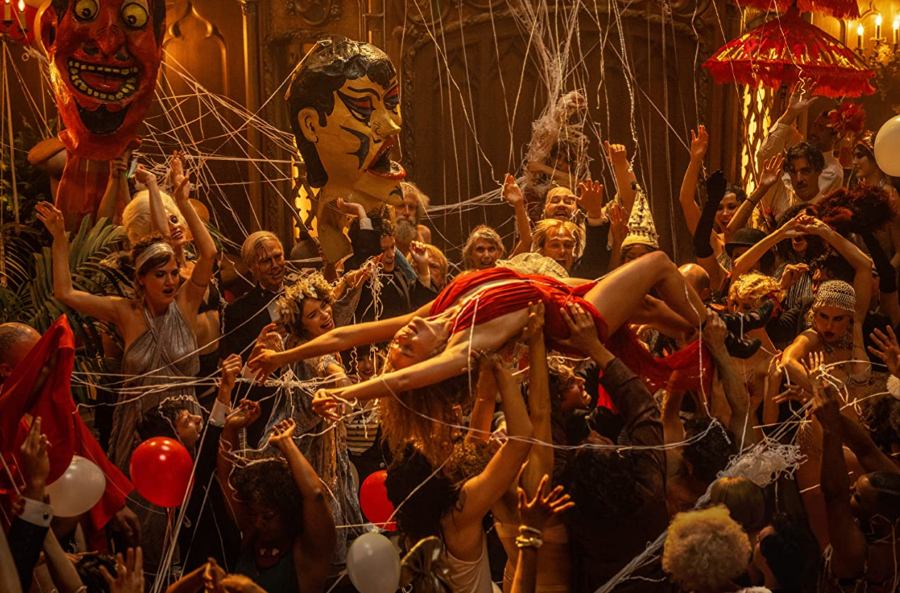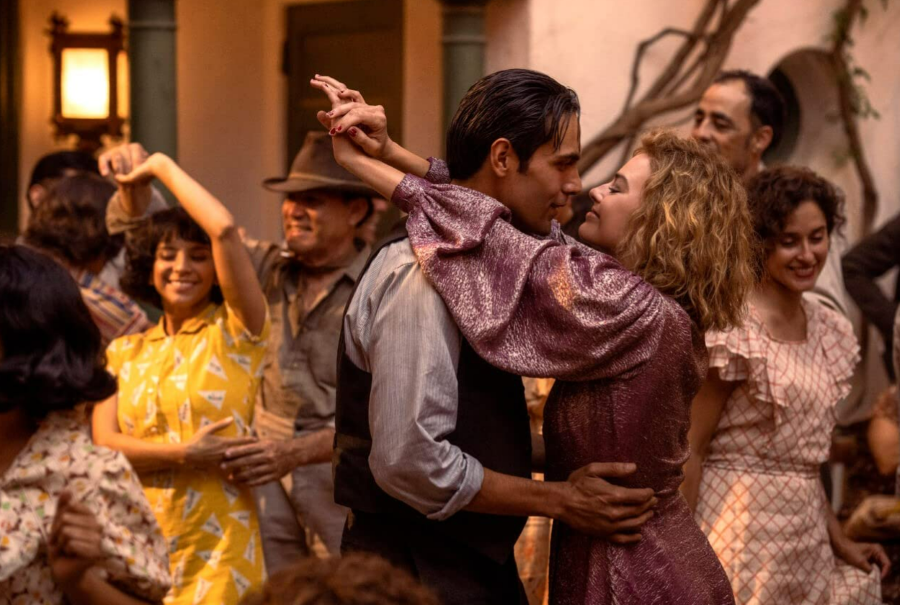
Babylon review — A love letter to cinema
Damien Chazelle’s 2022 film Babylon, with a star cast, vivid, vibrant cinematography, and remarkable storytelling has been one of the greatest flops at the box office in 2022. The three-hour-long tale about cinema, progress, and loss, set in the magnificent roaring 20s, transitioning into 30s Hollywood, has been criticised harshly by critics and the public.
There is a lot to take in Babylon, it's certainly one of the most daring films, exposing the bohemian lifestyle of the 20s and the pain of stepping into the unknown future. It’s hard to put in one sentence what Babylon is about. It's a film about love, and a love letter to cinema. Three-hour-long run time and graphic, sexual imagery have led Babylon reviews to be exceptionally harsh. But when watching it with a curious eye, the film is far more sophisticated than it seems.
 Margot Robbie and Diego Calva in Babylon (2022) © IMDB
Margot Robbie and Diego Calva in Babylon (2022) © IMDBOne of the best parts of Babylon is its characters and their development. Brad Pitt plays Jack Conrad, a successful charismatic movie star with an eternal passion for life and his work. Along with Pitts's exceptional performance, Margot Robbie stands out from the crowd in the role of Nellie LaRoy — soon to become a star of silent cinema. The characters are united by the drive to be part of films and enjoy life to its fullest.
 Brad Pitt and Diego Calva in Babylon © IMDB
Brad Pitt and Diego Calva in Babylon © IMDBThe film opens with a magnificent party, setting the mood. The controversial party scene envelopes all possible types of human pleasure one can imagine. From the beginning, the film offers scenes that cause disgust and repulsion. It's uncontrollable, chaotic, and for some viewers connected with romanticizing the negative aspect of sexual harassment, and misogyny that has been part of the film industry since its beginning. But the same scene also catches the essence of the bohemian lifestyle of truly roaring 20s and takes the audience to the heart of the most extravagant parties.
 Margot Robbie in Babylon © IMDB
Margot Robbie in Babylon © IMDBAs the party ends, we follow the life of the heroes who resemble the real-life stars of silent cinema. On the flip side, the film focuses on the life of minorities, and the contrast between people from different social circles. In Babylon, Chazelle attempts to let viewers feel as much as possible. If watched in the theatre, the audience is meant to be included in the lives of the characters.
One of the most important core ideas of the film Babylon is the idea of progress, its power and inevitability. Within the beginning of the 30s and the birth of so-called Talkies, silent film stars faced great difficulty. Suddenly, cinema was no longer a moving image, but a talking one. The additional sense required a lot more than strong facial expressions, beauty, and the ability to manipulate emotions, and proved that some actors had one great flaw: the voice and the manner of talking. The path of a change, especially a progressive change is never simple, and it doesn't go easy on anybody. Babylon depicts this transition, and also shows that in the light of the idea, progress stands higher than the personal tragedies of those who are left behind by it.
 Margot Robbie and Diego Calva in Babylon © IMDB
Margot Robbie and Diego Calva in Babylon © IMDBOne magnificent part of the film is its ending, that once again goes back to the theme of a love for cinema. Chazelle is a cinephile, and Babylon itself is a film about and for cinephiles, true lovers of cinema, who see the world through the cinematic lens, who understand and communicate through the language of films. Babylon also highlights the path of the rise and down of stars, who either get into the trap of earthly pleasures or can no longer be part of the new world. Loving films, and living for cinema is a defining quality of one of the leading characters, Manny (Diego Calva), a young man from Mexico with a big dream to work on the set. Often in Babylon, we see the world from Manny’s perspective, through his eyes and vision, because he is the backbone of the main idea itself. He is the only character for whom the love of cinema and the power of progress goes along, but he also has difficulties facing the reality of broken ideas, hearts, and dreams through the eyes of others. Again, by following his journey, viewers see the filthiest, most disturbing images that can be fairly compared to the imaginary reality of the underworld.
The main ideas and symbols in the film are disguised in its name “Babylon”, named after the capital of the magnificent empire, full of beauty, pleasure, and destruction, the city can be anonymous with so many stories. Starting from the city of Babylon to the story of the Tower of Babel, the symbolism is always about a human desire to create, discover, and experience more. Chazelle draws the image of such progress from the perspective of cinema.
It’s also important to mention the original score, for which the film got an Oscar nomination. The original album composed by Justin Hurwitz has a role of its own in the film. The music is perfect, and in general, the sense of sound is taken into the highest consideration by Chazelle and Hurwitz.
Behind the great scenes, and spectacular music, Babylon is a film that carries great ideas. No matter how painful the change is, it is necessary for the future. There is a lot to criticise in the film, but a lot more to praise. Contemporary cinema stands on its past, and even if the stars lost their careers in the transition, they are never lost, the world of cinema will forever keep their name, and legacy.
Babylon is the cinematic embodiment of Rilke’s famous quote: “ Let everything happen to you: beauty and terror. Just keep going. No feeling is final”. For three hours, viewers can experience every possible emotion, and be immersed in the great story of old Hollywood while sensing the deepest, most personal sorrows of each character.
Credits for the Main photo: Margot Robbie in Babylon © IMDB
